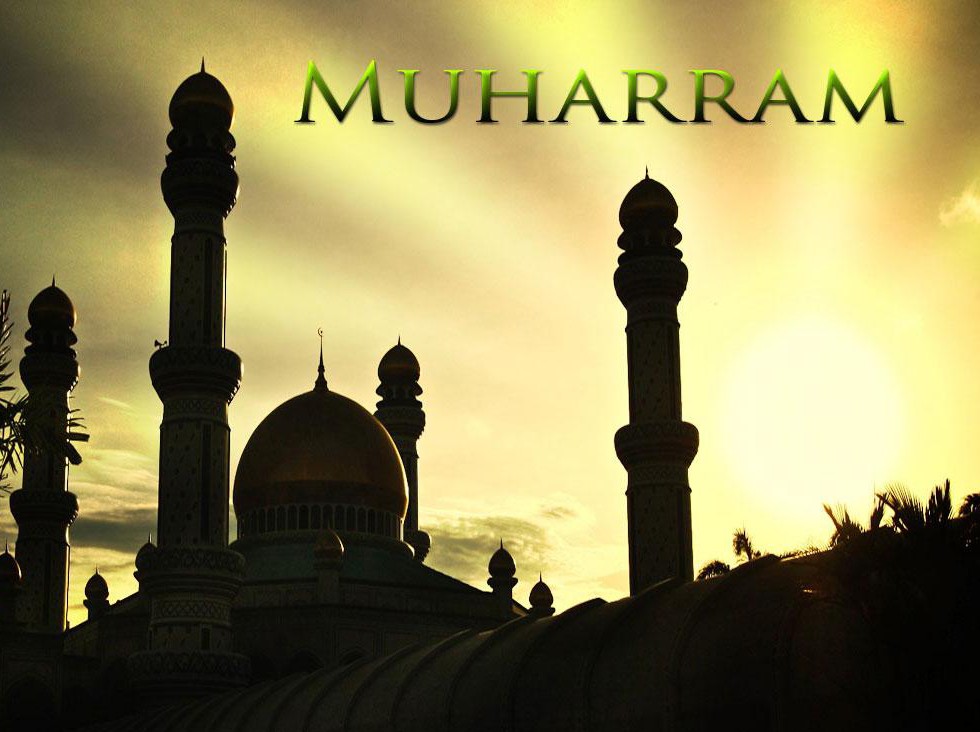
Islamic year, consisting of twelve months begins with the month of Muharram. Although all these months are significant, holding a special importance but the Quran has declared four months much sacred, which involves Zulqadah, Zulhijjah, and Rajab and the first month – Muharram. Even before the advent of Islam, it was considered as blessed owing to many historical events of great worth that took place in this month. Prophet Moses (A.s) triumphed over his rival Pharaoh and month was Muharram .It was this holy month wherein the ship of Noah (A.s) found resting place in the terrible flood. Also, in religion of Prophet Muhammad (pbuh), the month of Muharram acquired much sanctity. About this month, Prophet (pbuh) said; the best fasting after Ramadan is fasting in the month of Muharram (Sahih Muslim).
Later in 680 A.D, 10th Muharram turned out to be the day when beautiful flowers of Prophet Muhammad’s (pbuh) garden were trampled by the army of Yazeed in the battle of Karbala- that became the recognition of this month. The tragedy of Karbala has profound significance for all Muslims. It has left such an impact that even after hundreds of years it is fresh in minds of the Muslims. This tragic event has not only influenced Muslims but non-Muslims as well, for it was not the battle for gaining power or to conquest a territory. It was a clash between monarchy and Khilafat (Islamic mode of government based on consultation, selective democracy, and piety). It was a confrontation between justice and oppression and purely a courageous act of opposing falsehood, despotism, and savagery. It was the struggle where the hallowed family members of Prophet (pbuh) under the leadership of Prophet’s grandson Imam Hussein (a.s) preferred to lay down their lives rather than compromising on their scrupulous stand. Literally, they watered and rejuvenated the field of Islam with their pious blood to maintain its pristine and to provide it everlasting liveliness. Khawaja Moinuddin Chisti rightly said; ‘Haqa ke Binaye Laila ast Hussein. Hussein is the foundation of ‘There is no God but Allah’- the fundamental of Islam.
Allama Iqbal, while explaining the philosophy of this battle writes: Mudda’yash saltanat boody agar; Khud na harday ba chunin samaan e safar (Ramooz e Beykhoodi). Meaning, Imam Hussein’s only aim behind refusing to give allegiance to Yazeed was to uphold the truth and the glory of Islam. It is clear from the fact that when he left Medina for Mecca, he had a small band of his kith and kin, including sisters and children with him. Some companions were in their 80’s. If he had envisaged raging a political war, he would not have taken such people with him. As for war old men, women, and baby like 6-month old Ali-Asgar are not required, which were accompanying Imam Hussein in the battlefield.
Muslims worldwide commemorate this event in a way as if the tragedy of Karbala has occurred yesterday, which is indubitably enlivening. However, the mere commemoration of this tragedy is not enough. In fact, restricting this tragedy to remembrance and mourning is injustice to the teachings of Imam Hussein and his companions, because their sacrifice has enormous meaning. They gave a lesson to us with their blood. To defend the truth they chose to clash with the government of Yazid. They knew they could not defeat the mighty army of Yazeed, but did not tolerate any change in the Islamic principles. For holding up the head of the Ummah, Imam Hussein allowed his own head to be chopped. Thus, to express our love for martyrs of Karbala especially with the sacred reformative mission of Imam Hussein, the best way is to imbibe the message of Karbala.
The tyranny and oppression occur almost every day in different parts of the world. Almost everywhere, the people face atrocities, injustice has become the norm, and dishonesty has suppressed honesty. Morality has degraded. We have lost the ability to differentiate between good from bad. And in this situation, Karbala is issuing a clarion call to the people not to accept this system. It teaches us not be neutral or silent in situations of tyranny, oppression, and injustice, instead we ought to stand against all this. Karbala resounds even today asking us to reject any such idea that can be disadvantaging to our religion, implicitly cautioning us to remain adhered to the teachings of Islam- a complete code of life.
May Allah grant us ability to follow teachings of Imam Hussein (A.S) and his comrades.
Zeeshan Rasool Khan

No comments:
Post a Comment